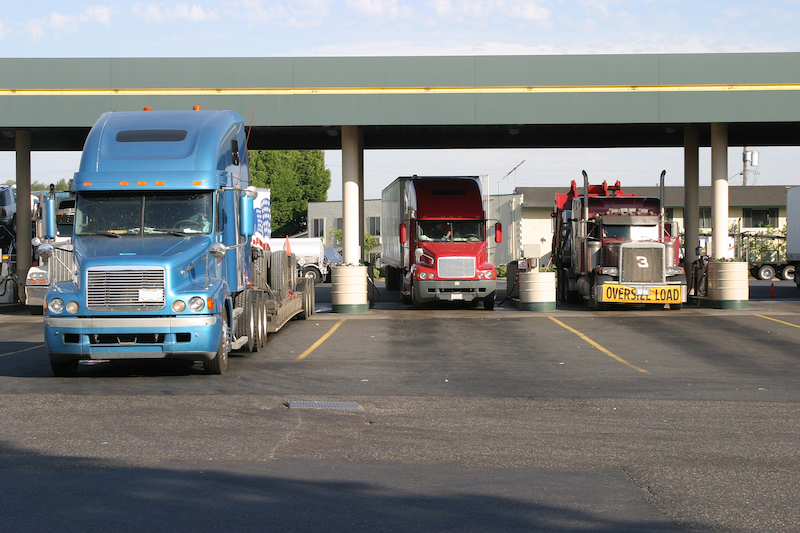Considerations for Bulk Fuel Purchasing

With fuel being a top expense for fleets, determining the most cost-effective purchasing method to fuel your vehicles and equipment requires careful consideration. While there’s no common “one method fills all”, what is common among all fleets is the need to manage the price of fuel and offset the risk of fuel price volatility. Choosing the method that best matches your specific requirements can help you tackle this need head-on.
There are four methods for purchasing fuel — mobile fueling, retail fuel cards, unattended cardlock facilities, and bulk fueling — each with its pros and cons. For purposes here, we’ll take a look at bulk fueling — how it can help you manage fuel costs and what to consider before signing a contract with a fuel provider.
Is Buying Bigger Always Better?
With fuel price volatility always present, it makes sense that buying fuel in bulk and protecting your bottom line from fuel price fluctuations with a fixed price contract would be a smart business decision. If your fleet is a first responder, emergency or utility fleet, it might be necessary to keep your fleet job-ready with on-site fueling capabilities. But for other types of fleets, what may seem like a smart move could prove a costly one in the long run.
Purchasing fuel in bulk can provide numerous advantages that save you time and money. This includes guaranteed fuel delivery, a set delivery schedule, improved productivity from drivers not dealing with retail lines, greater control over fuel management since fuel is from one source, and better price control with a fuel contract. But to reap those advantages, bulk fueling must be cost-effective and feasible for your fleet operations — for your unique needs.
The following are some considerations to take into account to help you determine that.
Fuel Needs
Your fuel requirements depend on several factors. This ranges from the number of vehicles and equipment, the size of the fuel tanks, and if fuel is used as it’s delivered or if it’s stored for future use. Whether it’s reserved for future use is critical because diesel contains biofuel. If it is held too long, the biofuel can create problems that can not only contaminate the fuel but can damage fuel system components — costing you money for repairs and lost productivity from possible downtime.
Location, Space, and Equipment
Filling up your vehicles in one centralized location rather than drivers spending time going to various retail locations is an obvious advantage of bulk fuel delivery over retail fuel cards and cardlocks. But if your operations are not centralized and are spread out over several areas, bulk fuel may not be the most cost-effective or efficient fueling option.
In addition to a centralized location, you need the necessary space to accommodate what’s required for a bulk fueling operation. This includes parking areas, fuel receiving and dispensing facilities, spill containment/cleanup equipment, lighting, and backup generators.
Costs and Manpower
While you may save time and money with bulk fuel purchasing, it requires time, money, and manpower to establish and maintain your fuel site. To that end, conducting a thorough analysis is key to the decision-making process. Areas to consider include:
- Upfront costs for installing fuel tanks and fueling equipment, such as dispensing and monitoring systems and third-party software.
- Costs for regular maintenance of tanks/equipment and fuel quality testing.
- Ongoing expense for federal, state, and local rules/regulations.
- Spill containment/cleanup equipment and materials costs plus possible costs from environmental liability.
- Training of employees involved with bulk fueling processes, including tank inspection, dispensing of fuel, tank shut-offs, and spill containment/cleanup.
- Costs and adaptability of fuel management technologies that enhance continuous tank filtration, on-vehicle filtration, and filtration at the delivery point to maintain fuel quality.
Provider Contract
Having a bulk fueling contract in place with a reputable fuel provider has its benefits. It guarantees you the fuel you need when you need it and protects you from price fluctuations. It also makes planning and managing your fuel budget a much simpler, streamlined, and accurate process.
When talking with a provider about your contract, negotiating the best price is a top priority and getting the best price requires doing your homework on fuel markets and what affects fuel prices. Your provider should have a provision in your contract to review the agreement. This is important as high prices could cause manufacturers to overproduce oil, which can cause a fluctuation in price. If you signed a contract to buy fuel in bulk when prices were high, you should be able to take advantage of the lower price.
To guarantee fuel, make sure your provider has an extensive network of nationwide carriers or multiple sources. Depending on a single-source provider for fuel has risks, such as vulnerability to fuel shortages, which could mean no fuel for you or higher prices due to a lower supply.
To learn about PS Energy’s Bulk Fuel program, visit https://psenergy.com/fuel-management/bulk-fuel/